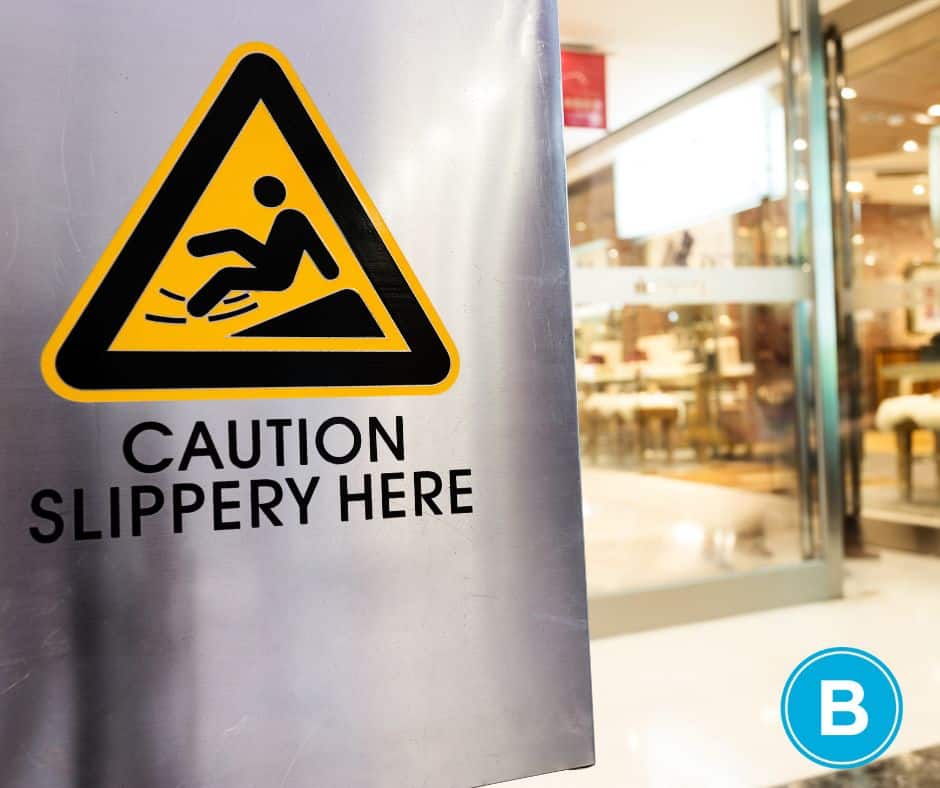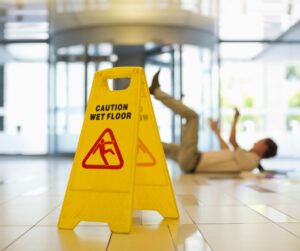
Following a slip and fall injury on someone else’s property, victims are left with many questions. What caused the accident? Who is at fault? Lawyers are there to answer these questions (and more) and help their clients navigate the process of pursuing justice. Sometimes though, navigating that process can leave victims with even more questions thanks to unfamiliar vocabulary and legal phrases. What happens when you hear terms like “premises liability” used by your lawyer?
What is a premises liability case?
First, you’ll need to know if your slip and fall case is being pursued as a premises liability case. Your lawyer will be able to give you this information, and will help you understand what that means moving forward. Some common terms and phrases you might hear include:
Duty of care
Property owners have a duty of care to maintain their premises in a reasonably safe condition. This means they should take necessary steps to prevent conditions (or remove hazards) that could cause slip and fall accidents.

Hazardous conditions
Hazardous conditions can include wet or slippery floors, uneven surfaces, poor lighting, torn carpeting, loose handrails, or any other factor that could lead to an individual falling.
Notice
Property owners are liable if they knew, or should have known, about the hazardous condition but didn’t take appropriate action to address it. For example, if water accumulates near the door of a business during a rain storm, that’s a hazardous condition. If the owner or staff was aware of it but failed to clean it up, put down a non-slip rug, or provide adequate warning, they may be held responsible for any resulting injuries in a premises liability case.
Gathering evidence of premises liability
To strengthen a slip and fall premises liability claim, it’s important to gather evidence. This may include taking photographs of the accident scene, documenting injuries, obtaining witness statements, and reporting the incident to the property owner or manager. The more evidence gathered, the better one’s chances of establishing liability. Your lawyer will help gather the needed evidence as they build your individual case.
Statute of limitations
There are specific timelines, known as statutes of limitations, within which you must file a premises liability lawsuit for your injury. These timelines vary depending on the jurisdiction and the nature of the case. It’s important that victims reach out to a lawyer ASAP to understand and meet these deadlines following an accident.
Tampa premises liability lawyers face complicated cases like these every day.
Premises liability laws vary by state. Consulting with a personal injury attorney who specializes in premises liability in your area can help you understand your rights, evaluate your case, negotiate with insurance companies, and pursue legal action if necessary. Tampa victims call Brooks Law Group when they need representation they can count on. We specialize in slip and fall cases and work closely with you as we build a case to secure the justice and compensation you deserve. You don’t pay until we win, and our consultations are completely free. Schedule your appointment and let us fight for you! When accidents happen, you can always Look to Brooks.













